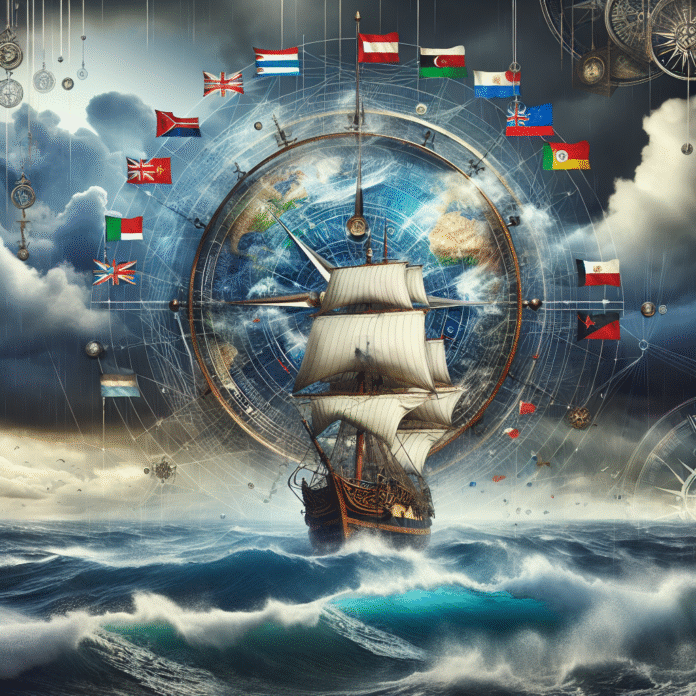In an increasingly interconnected world, political turbulence is an unavoidable reality. From economic instability to climate change and geopolitical conflicts, the landscape of global power dynamics is constantly evolving. As we delve into the key players shaping these dynamics, it’s essential to understand both state and non-state actors, their motivations, and their impact on the world stage.
1. Major World Powers
United States
Historically a superpower, the United States continues to wield significant influence over global politics, economy, and culture. Under recent administrations, its policies have undergone radical shifts—from isolationism to renewed engagement with international institutions. The U.S. is a critical player in areas such as defense spending, technology, and climate policy, positioning itself as a leader or challenger depending on the issue at hand.
China
China’s rise has redefined global political landscapes. With its ambitious Belt and Road Initiative and increasing military assertiveness, China is reshaping trade routes and gaining influence in developing nations. Additionally, its approach to issues like technology transfer and cyber-security represents a new paradigm of statecraft, challenging Western norms and alliances.
Russia
Russia’s geopolitical maneuvers, particularly in Eastern Europe and the Middle East, have reinvigorated its role as a key player on the world stage. From the annexation of Crimea to its involvement in Syria, Russia is an unpredictable force that often tests the resilience of existing alliances, particularly NATO.
2. Emerging Powers
India
India’s strategic importance is growing, owing to its large market, demographic advantage, and geopolitical positioning in South Asia. As China and the U.S. vie for dominance, India is increasingly seen as a counterbalance, particularly in regional security matters. Its role in organizations like the Quad (along with the U.S., Japan, and Australia) underscores its emerging influence.
Brazil
As the largest economy in South America, Brazil plays a crucial role in regional politics. Attending climate summits and participating in economic partnerships, Brazil represents a voice for the Global South, advocating for equitable development and sustainable practices.
3. Non-State Actors
Multinational Corporations (MNCs)
MNCs wield significant power in shaping economic policies and influencing political decisions across nations. From tech titans like Google and Amazon to oil giants like ExxonMobil, these corporations drive globalization, often swaying government policies to favor their interests. Their influence extends into lobbying, where they push for regulations that align with their business goals.
Non-Governmental Organizations (NGOs)
NGOs play a critical role in addressing social issues, advocating for human rights, and promoting environmental sustainability. Organizations like Amnesty International and Greenpeace have substantial sway in shaping public opinion and government actions. Their ability to mobilize grassroots movements often compels governments to act or reconsider detrimental policies.
4. International Organizations
United Nations (UN)
The UN remains a vital platform for diplomacy, conflict resolution, and international cooperation. Despite criticism of its effectiveness, the UN drives many global initiatives, including sustainable development and peacekeeping efforts. The ongoing reform debates within the UN Security Council highlight the need for adaptation in a rapidly changing geopolitical landscape.
World Trade Organization (WTO)
The WTO facilitates global trade negotiations and disputes, making it a cornerstone of economic stability. However, rising nationalism and protectionist policies threaten its efficacy, as countries grapple with balancing domestic interests against the benefits of global trade.
Conclusion
Navigating political turbulence requires a nuanced understanding of the various actors influencing global power dynamics. From established superpowers and emerging nations to MNCs and NGOs, each player has a unique role. As we move further into the 21st century, the landscape of international relations will continue to shift, demanding adaptability and cooperation to address global challenges effectively. Understanding these dynamics is crucial for fostering stability and shaping a more equitable world.






